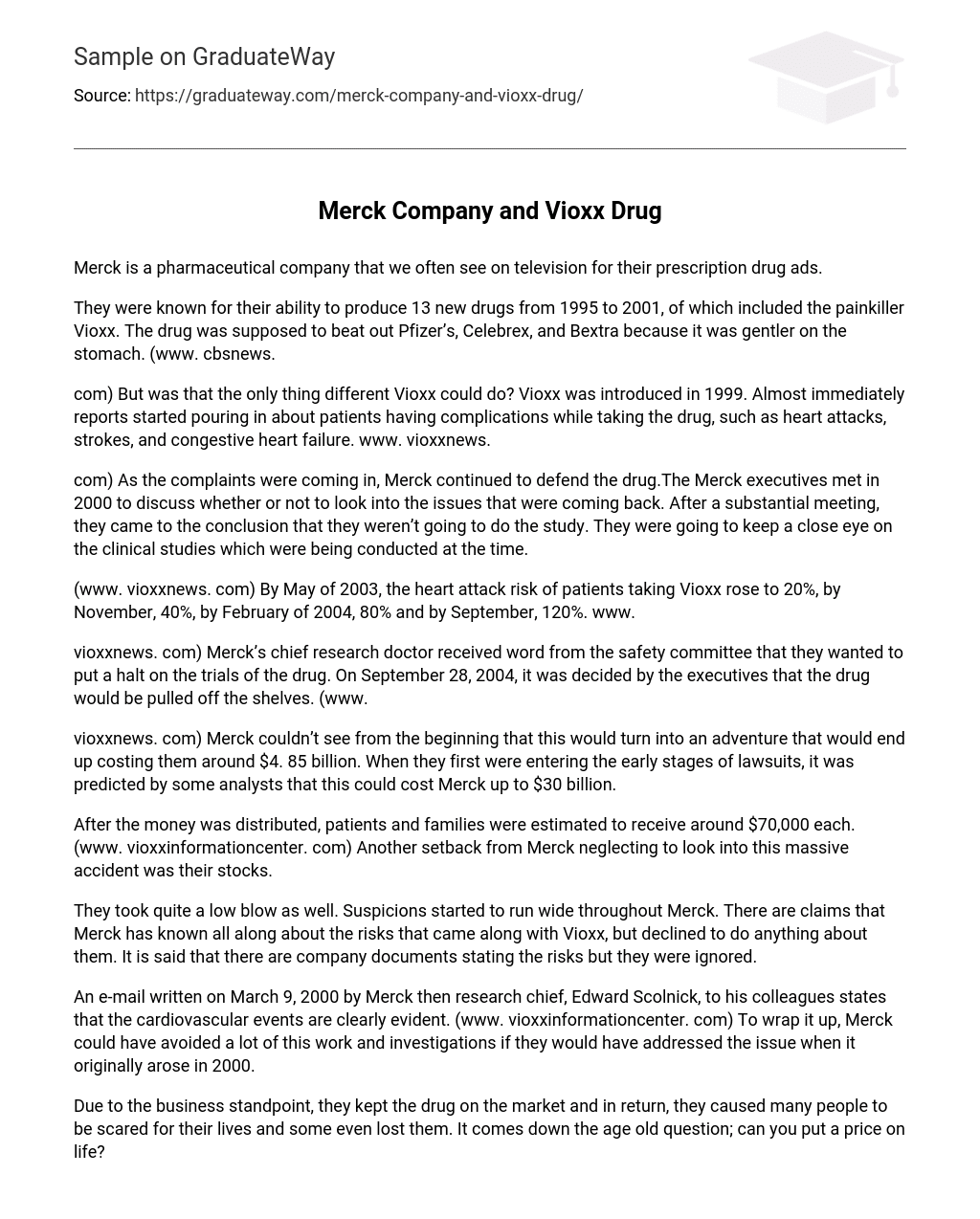Merck, a pharmaceutical company, frequently features in television advertisements promoting their prescription medications.
According to a source from www.cbsnews, from 1995 to 2001, they earned recognition for their development of 13 new drugs. One of these drugs was Vioxx, a painkiller designed to be gentler on the stomach compared to Pfizer’s Celebrex and Bextra.
Despite being introduced in 1999, Vioxx quickly faced reports of patients experiencing complications like heart attacks, strokes, and congestive heart failure. These incidents were recorded on the website www.vioxxnews.com. However, it begs the question: were these the sole abnormalities associated with Vioxx?
com) Despite the increasing complaints, Merck persisted in defending the drug. In 2000, Merck executives convened to deliberate whether they should investigate the emerging issues. Following an extensive meeting, they ultimately decided against conducting a study and opted to closely monitor ongoing clinical studies.
(www.vioxxnews.com) The risk of heart attack for patients taking Vioxx steadily increased over time, reaching 20% in May 2003, 40% in November, 80% in February 2004, and 120% in September. www.
vioxxnews.com) The safety committee informed Merck’s chief research doctor that they wanted to stop the drug trials. On September 28, 2004, the executives decided to remove the drug from shelves. (www.
Merck, the pharmaceutical company, did not anticipate that the issue with Vioxx would lead to significant financial losses. The company ended up spending approximately $4.85 billion as a consequence. Initially, experts predicted that Merck might face costs as high as $30 billion during the early stages of the legal proceedings.
Following the distribution of funds, patients and their families were projected to receive approximately $70,000 each (source: www.vioxxinformationcenter.com). Merck’s stocks also suffered as a result of their failure to investigate this significant incident.
Merck faced significant criticism and suspicion for allegedly ignoring the risks associated with Vioxx. Claims suggest that the company had prior knowledge of the dangers but chose to ignore them, despite the presence of company documents explicitly stating these risks.
In an email dated March 9, 2000, Edward Scolnick, who was the research chief at Merck at that time, mentioned to his colleagues that the cardiovascular events were clearly visible. (www.vioxxinformationcenter.com) To summarize, had Merck dealt with the issue when it first emerged in 2000, they could have avoided the extensive work and investigations they faced later on.
Keeping the drug on the market from a business standpoint resulted in causing fear and loss of lives among many people. This raises the timeless ethical question – can one quantify the value of life?





